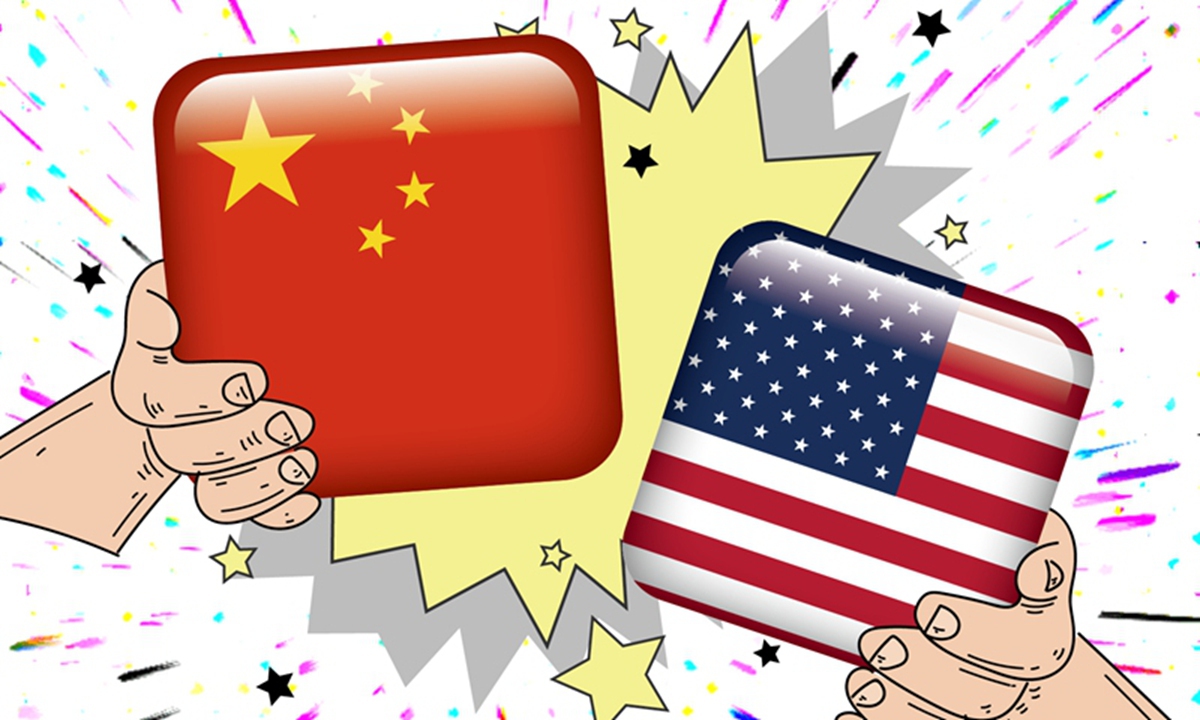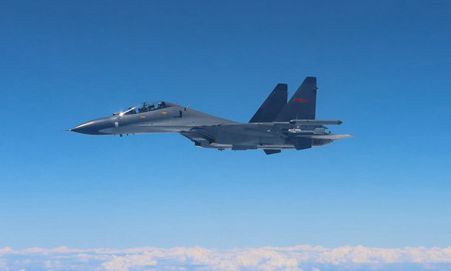'US should bear responsibility' for four times of grounding of China-US military ties over Taiwan question

Photo: Global Times
China on Friday announced eight countermeasures in response to US House Speaker Nancy Pelosi's highly provocative visit to the island of Taiwan, among which three concern China-US military ties. China canceled China-US theater commander talks, defense policy coordination talks and military maritime security consultative mechanism.
Taking the latest countermeasures into account, China-US military ties have hit rock bottom over the Taiwan question for at least four times since the establishment of diplomatic ties between the two sides.
Experts said that the US should be blamed for the suspension of basically all channels for the two militaries to communicate. On one hand, the US vowed to raise guardrails for bilateral ties and avoid military confrontations, while on the other, the country continued to infringe China's core interests.
The relationship between the Chinese and US militaries is an important part of bilateral ties. In the context of the current China-US relationship, the stability of the relationship between the two militaries is the "brake pad" that prevents the bilateral relationship from getting out of control. The negative impact of Pelosi's visit to the Taiwan island on the exchanges between the two militaries of China and the US is obvious, and it will also affect future relations between the two countries and their militaries, experts said.
On June 10, Chinese State Councilor and Defense Minister Wei Fenghe and US Secretary of Defense Lloyd Austin met for the first time in Singapore. On June 30, at a routine press conference of the Ministry of National Defense, Tan Kefei, deputy director of the Ministry of National Defense Information Bureau and spokesperson of the Ministry of National Defense, said that "the China-US military relationship is now at an important juncture, and going forward, the two militaries will carry out a series of dialogues and exchanges."
On July 7, General Li Zuocheng, a member of the Central Military Commission (CMC) and chief of staff of the CMC Joint Staff Department, held video talks at the invitation of General Mark Milley, US Chairman of the Joint Chiefs of Staff.
However, along with Pelosi's visit, the China-US military ties have declined steeply and scheduled talks have been canceled.
Looking back at the history of China-US military relations, including this incident, due to the influence of the Taiwan question, the relationship between the two militaries has been damaged and fallen to a low point for at least four times.
In 1995-96, then Taiwan island leader Lee Teng-hui visited the US, leading to increasing tense in China-US military ties. China successively conducted two large-scale live missile launch exercises at that time; in October 2008, the US sold advanced weapons worth more than $6 billion to Taiwan island; in January 2010, the US again sold weapons with a total value of nearly $6.4 billion to the island.
Tian Shichen, founder of the Global Governance Institution and director of the International Center for the Law of Military Operations, told the Global Times that the Taiwan question concerns China's core interests and its essence is to safeguard China's national sovereignty and territorial integrity.
The military dialogue mechanism between China and the US includes dialogue between senior-level military commanders. This is the first time that the dialogue mechanism of China-US Theater Commanders Talk goes public.
China-US Defense Policy Coordination Talks and China-US Military Maritime Consultative Agreement meetings are the communication channels in the China-US military relations, which are relatively long-term, stable and the most important dialogue channels, a military expert told the Global Times on Friday. The negative impact on China-US military relations is obvious following the cancellation of these two mechanisms, the expert said.
"Communication between the two militaries has improved a little recently, but it is now declining sharply," said the expert.
Zhou Bo, a researcher at the Center for International Security and Strategy at Tsinghua University echoed the opinion. Zhou told the Global Times on Friday that with the declining of China-US relations in recent years, the military relations between the two sides will inevitably be negatively affected.
The two above-mentioned dialogue mechanisms have played a vital role in military communication between the two sides. However, with the cancellation of the two, communication at the working level between the US and Chinese militaries will come to a standstill, said Zhou.
Tian has been involved in the negotiations of the China-US Military Maritime Consultative Agreement for a long time. Tian said that the communication mechanism was interrupted twice by the NATO bombing of the former Chinese embassy in the Federal Republic of Yugoslavia in 1999 and the China-US plane collision incident in 2001. "At present, almost all the channels of mechanism communication between the Chinese and US militaries are interrupted, increasing the possibility of misunderstanding and unexpected incidents, all of which are the responsibility of the US."
Another expert told the Global Times that the US has been unilaterally seeking to add a so-called "guardrail" to prevent a military conflict between the two sides, but on the other hand, the US has been constantly provoking and violating China's core interests. "China's actions are a warning to the US that those who play with fire will eventually get burned."
Experts believe that given the US military action on China's doorstep, along with the disruption of military-to-military communication channels between China and the US, there is no doubt that a possibility of a misfire will increase.
But they agreed that although the China-US military ties hit rock bottom, it does not mean the two militaries canceled all communication channels. The hotline between the two defense ministries still works and emergency talks can still be conducted.
Photos
Related Stories
- Popular island map highlights shared heritage
- Political parties of various countries strongly oppose Pelosi's visit to China's Taiwan region
- Commentary: China's reunification an unstoppable trend
- China summons Japanese ambassador to lodge representations over G7 statement on Taiwan
- Dominica condemns Pelosi's visit to China's Taiwan
Copyright © 2022 People's Daily Online. All Rights Reserved.









